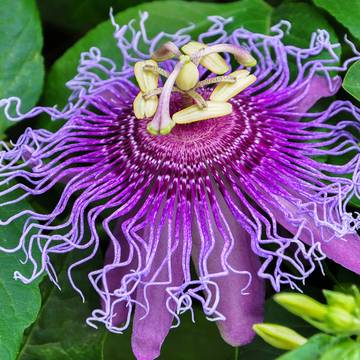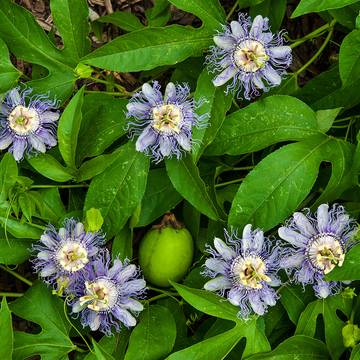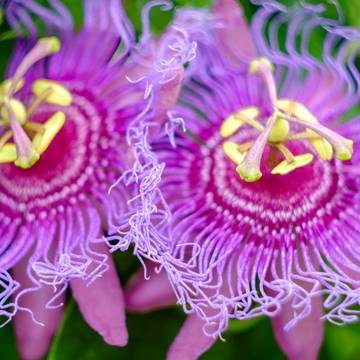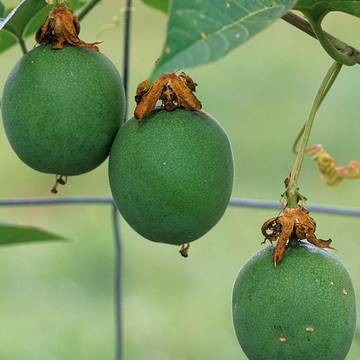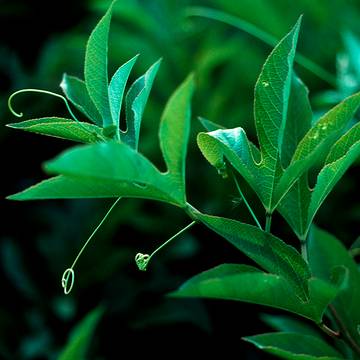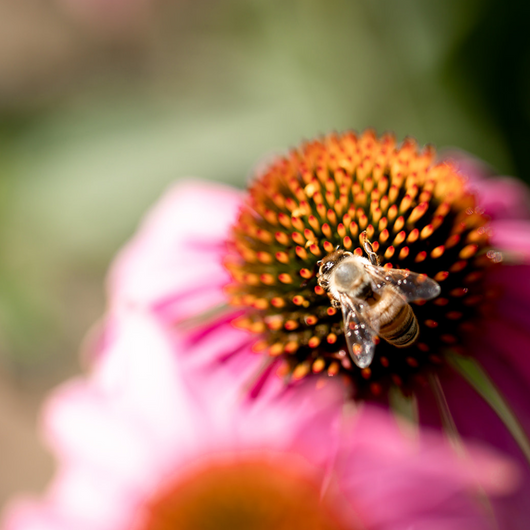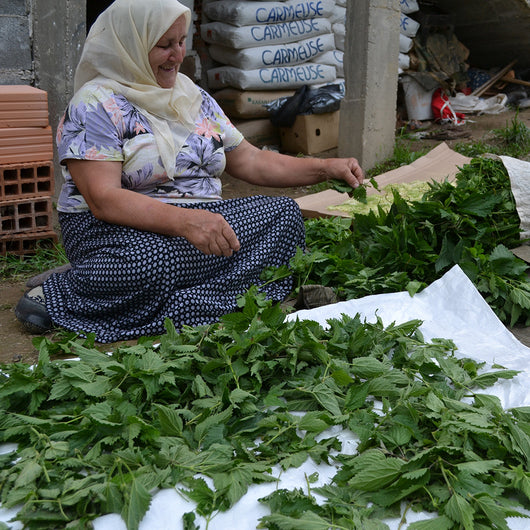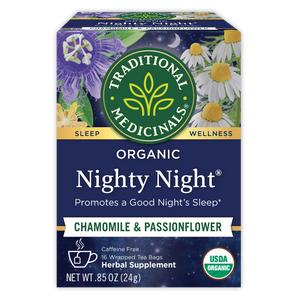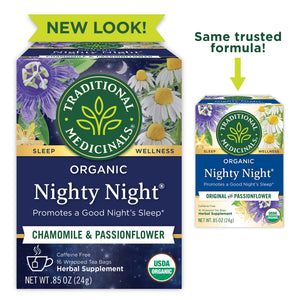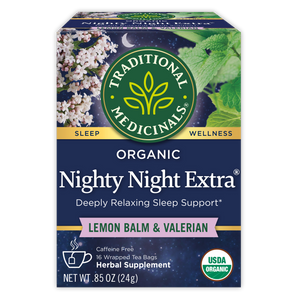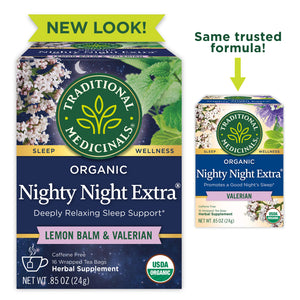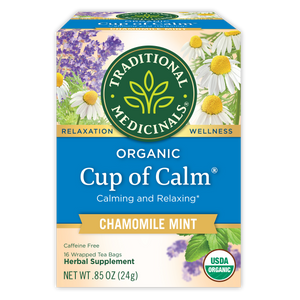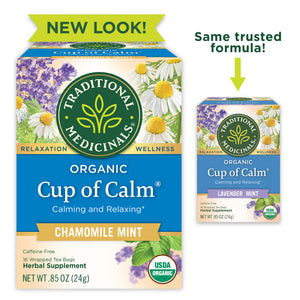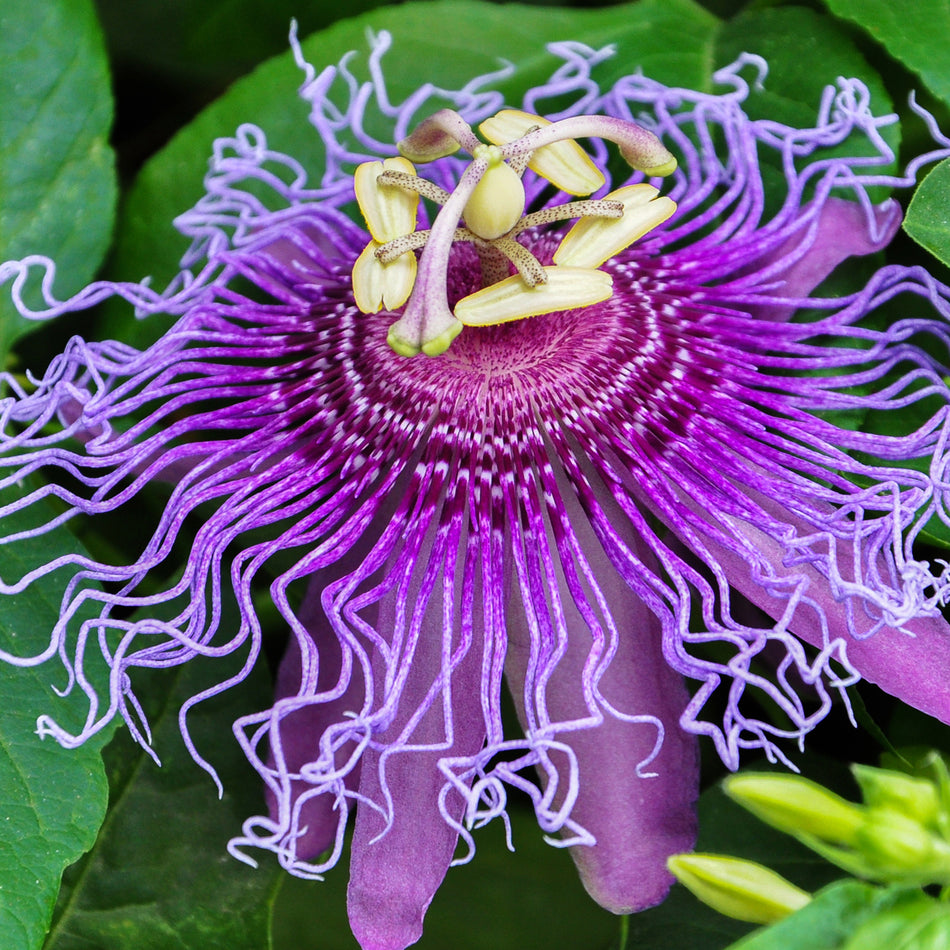
Passionflower
Passiflora incarnataPassionflower benefits the mind and body as it soothes the nerves, promotes relaxation and rest, and helps ease anxious minds to get some well-needed sleep.*
Say hello to the sweet lullaby of the herbal world.
What are the Benefits of Passionflower?
The use of passionflower for sleep and anxiety resides in a range of compounds, including, but not limited to, flavonoids and alkaloids. It is believed the synergistic activity of the beneficial compounds in passionflower contributes to the gentle sedative effect on the body.*
Known as a nervine in herbalism, or an herb that supports the nervous system, a cup of passionflower tea soothes the nervous system, eases an anxious mind, and promotes a good night’s sleep.*
Folklore & Historical Use of Passionflower
The passionflower plant is commonly called maypop, referring to the loud popping sound the fruits make when trampled underfoot. Passionflower fruit is edible, with an unforgettable tropical, tart citrus flavor that can be enjoyed right from the fruit, as fresh pressed juice, or preserved into jam.
In the pre-Columbian era, Native American tribes of the Southeast used passionflower as food and herbal medicine. Cherokee have traditionally boiled and fried the young shoots, mixing them with other edible greens, while also using the plant topically as a poultice. Spanish missionaries and other European settlers promoted passionflower as a medicinal herb throughout their migrations, and by the 18th century, the plant had gained such wide recognition that botanists began singing its praises around the world.*
Botanical Description & Habitat
Passionflower is native to the Southeastern United States, Central America and South America. This rapid growing perennial is a tendril-climbing vine with stunning, exotic, fringed and fragrant flowers that bloom in the summer. The vine produces fleshy, edible oval fruits called maypops which appear in July, becoming yellow when they are ready to harvest in the fall.
There are approximately 700 species in the Passifloraceae family, with up to 60 species used for food, including the exotic and delicious passionfruit, sought the world over for its rich, sweet juice. But it is one of the genus’ most medicinal plants, Passiflora incarnata, which Western herbalists use the most. Growing wild on the edge of fields, roads, and forests, this sun-loving vine thrives in hot climates and well-drained soils like those in its native Southeast. For those who find it in nature, don’t be surprised to see it surrounded by ants, who love its sugary nectar. The ants will protect this food source at any price, and often kill off predatory caterpillars and their eggs, preventing them from eating the plant’s leaves.
When To Use Passionflower
Brew up a dose minutes before bed.
A perfect after-dinner nightcap to slow down for bedtime.
To put a sunset on the stressful feelings of the day.
The Business of Sustainable Plants
Our business is rooted in plants, and for us, it’s a business imperative that we care for the ecosystems where these plants live and thrive. We believe that everything is interconnected, which means supporting ecosystems and the farmers and collectors who harvest and gather our herbs. Finding opportunities to reduce or eliminate emissions at the source, we support organic and regenerative farming practices as well as voluntary certifications like Organic and FairWild. These ensure the absence of pesticides, herbicides, as well as the ongoing sustainability of wild collection, and the health and livelihoods of the collectors who forage. Josef Brinckmann, Traditional Medicinals’ Research Fellow, Medicinal Plants and Botanical Supply, asserts, “Everyone has a role to play in preserving biological diversity. One way of doing that is by equitably supporting the local people to serve as stewards of the land.”
It Starts with Organic
We choose to source organic because we believe in the positive impacts it has on environmental sustainability, biodiversity, and overall ecosystem health. Organic helps us increase transparency while prioritizing consumer well-being and farmer success, which is key to producing the high-quality herbs we source. In 2021, we procured 2.73 million pounds of certified organic herbs, over 99.7% of our total botanical herbs purchased. Volumes were down slightly from FY20 due to timing of inventories received.
The impact from organic farming creates a vital ecosystem through improved soil health, water quality, pollinator habitats, and biodiversity. Organic farms also have increased carbon sequestration potential through long-term carbon storage in the soil, helping to mitigate climate change.
One of the benefits of organic that we most value is farmer health. We care deeply about the people who produce our herbs, ensuring that they are not exposed to synthetic chemicals found in conventional agriculture.
Fair Trade
We believe that everyone deserves a fair wage for hard work. That’s one of the reasons why we’re committed to fair trade. Traditional Medicinals® is a registered Fair Trade “brand holder”, “licensee” and “manufacturer,” and our products are certified by Fair Trade USA, an independent third-party certifier. We were an early adopter of Fair Trade, having launched our first fair trade tea product in 1998, just one year after Fairtrade International (FLO) was established. We continue to work closely with our network of producers to help them to implement fair trade standards and get certified.
Nighty Night® Tea
Nighty Night tea combines passionflower with calming chamomile...
Nighty Night Extra® Tea
Organic Nighty Night Extra tea infuses the power...
Additional Information
Important Precautions:
Consult your healthcare practitioner if sleeplessness persists continuously for more than 2 weeks, if you are pregnant or breastfeeding. Consumption of alcohol is not recommended. Some people may experience drowsiness. Exercise caution if you are driving, or involved in activities that require mental alertness within two hours of consumption.

